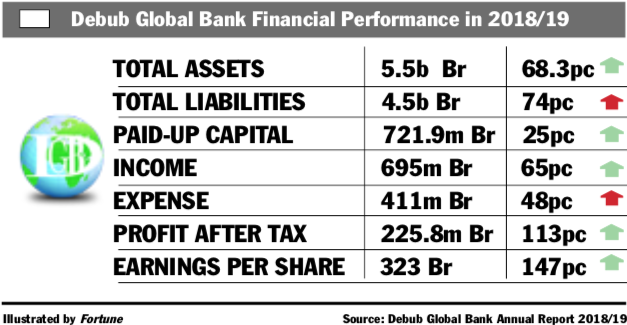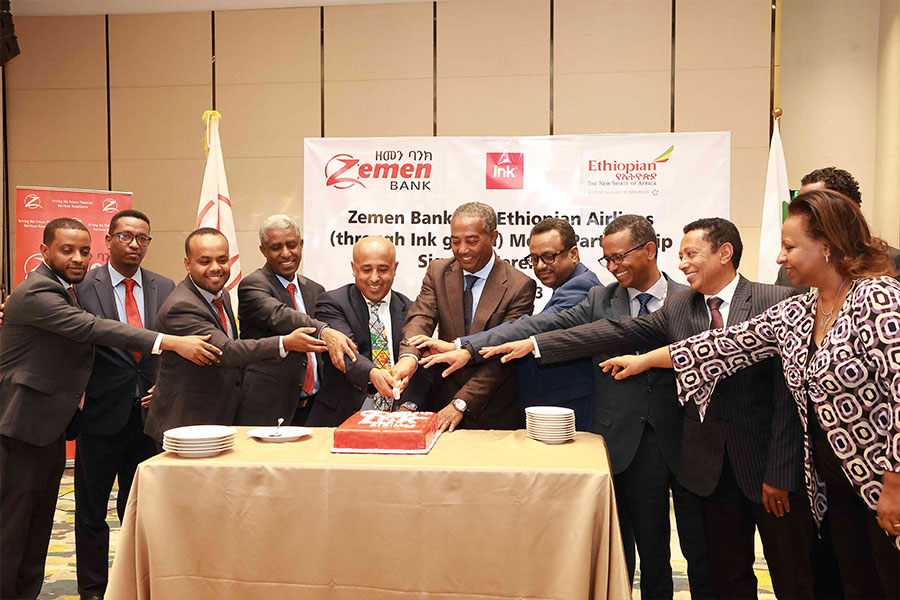
Commentaries | Feb 24,2024
Jan 19 , 2024
By Edoardo Campanella
Following the pandemic and globally disruptive conflicts like Russia's war against Ukraine, it is understandable that many countries would pursue policies to strengthen domestic economic resilience. But self-reliance strategies tend to lead to systemic instability and fuel international tensions – or worse, warns Edoardo Campanella, a senior fellow at the Mossavar-Rahmani Center for Business & Government at the Harvard Kennedy School.
Over the past three years, COVID-19 and the war in Ukraine exposed the vulnerabilities stemming from deep global economic integration.
Now, governments and companies worldwide have prioritised shortening supply chains, rebuilding domestic production capacity, and diversifying suppliers. But these responses are motivated not only by pragmatic risk-management considerations but also by the goal of economic self-reliance, an aspiration that threatens to derail any stable restructuring of the global economy.
In his 2022 State of the Union address, US President Joe Biden promised to create an economy where “everything from the deck of an aircraft carrier to the steel on highway guardrails is made in America from beginning to end. All of it.”
These commitments were then crystallised in the CHIPS and Science Act and the Inflation Reduction Act, which offered sweeping subsidies and tax breaks to incentivise domestic manufacturing. The Biden administration has also seized on the concept of “friend-shoring,” which represents a kind of regional self-reliance based on national security and normative arguments.
In response, French President Emmanuel Marcon has proposed that the European Union (EU) pursue its own “Made in Europe” strategy. But, inward-looking shifts in production have not been confined to advanced economies. Indian Prime Minister Narendra Modi has also vowed to create a “self-reliant India,” and even before the pandemic broke out, China’s quest for self-reliance was well underway, with President Xi Jinping reviving in 2018 Mao Zedong’s slogan of “regeneration through one’s efforts.”
Self-reliance is different from protectionism. The nominal goal is not to protect specific firms or sectors, or to undercut others, but to build domestic resilience in a less secure world. As an inward-looking strategy of preservation, rather than an outward-looking program of punishment, it appears benign, even sensible. But this is an illusion. Even if self-reliance is an understandable response to a world that is moving away from economic openness, it risks fueling even greater systemic instability. Today’s autarkic tendencies are a symptom of the fading Pax Americana.
The intensifying US-China rivalry and the widening divide between democratic and authoritarian regimes have increasingly impaired America’s ability to keep the global market economy open.
According to one international relations theory, a trusted and committed hegemon that enforces global rules and provides global public goods is a prerequisite to keeping international markets open. When the predominant power no longer has the means or will to play this role, markets suddenly become inaccessible. The hegemon will use protectionism to contain rising challengers and preserve its global status while reducing its international commitments. In response, new challengers, like China today, will undermine the international system by challenging its legitimacy.
Signs of America’s diminished commitment to the global liberal order have been multiplying. During Donald Trump’s presidency, the United States (US) openly rejected the principles and sense of purpose that had animated its international engagement for the preceding seven decades. And though Biden declared early in his presidency that “America is back,” his administration has only marginally repaired the damage that was done over the preceding four years. The US is still using trade as a weapon against China and pursuing an exclusionary industrial policy. At the same time, China, along with other emerging economies, has been building a parallel international system centred around its own institutions and partnerships.
The world thus finds itself in an increasingly unstable equilibrium. While the international economic order still exists in a formal sense, it no longer delivers stability in practice. Countries have no choice but to build up their domestic capabilities and regional groupings. As the world divides along democratic and authoritarian lines, international exchange will be based more on political discrimination than comparative advantage.
Historically, leading intellectual exponents of self-sufficiency – from Englebert Kaempfer, Jean-Jacques Rousseau, and Johann Fichte to Mohandas Gandhi and John Maynard Keynes – mistakenly assumed that such strategies contributed to international peace by insulating countries from foreign influences that encouraged war. But, the inward-looking nature of self-reliance inevitably clashes with the desire for larger economic areas or unavailable goods.
More than a century ago, European empires tried to achieve exclusive control over economically valuable regions, contributing to the great-power tensions that fueled wars throughout the 19th Century, before erupting decisively in Sarajevo in 1914. Similarly, during the interwar years, Imperial Japan tried to reduce its dependence on the US for key commodities by expanding its footprint in Asia; but that duly brought it into direct confrontation with Western powers in the region.
Today, tensions over the status of Taiwan, a critical link in the global semiconductor supply chain, epitomise this risk. If the fragmentation of the global economy continues, great-power tensions will likely intensify, increasing the likelihood of a clash. Alternatively, the US could come to terms with the erosion of its hegemonic position. While it still exercises substantial influence, it could take the lead in restructuring global governance to make it more inclusive and consensual. That is what the world needs to re-establish trust among countries and encourage economic openness. Mutual reliance among countries should be the goal.
To prevent the global economy’s costly fragmentation into separate blocs, we need less authoritarian-versus-democratic rhetoric, greater efforts to separate economic issues from concerns about values, and a renewed diplomatic focus on the global commons. Self-reliance strategies invariably lead to systemic chaos, as key goods and markets become inaccessible. Attempts to build domestic capabilities in exclusionary ways have never brought the national resilience or international peace that self-reliance advocates promised. On the contrary, such policies have usually been harbingers of conflict.
PUBLISHED ON
Jan 19,2024 [ VOL
24 , NO
1238]


Commentaries | Feb 24,2024

Fortune News | Jan 25,2020

Fortune News | Jun 08,2025

Viewpoints | Jun 17,2023

Radar | Oct 23,2023

Viewpoints | Oct 28,2023

Radar | Oct 15,2022

Viewpoints | Jan 19,2024

Fortune News | Oct 28,2023

View From Arada | Nov 20,2021

Photo Gallery | 170509 Views | May 06,2019

Photo Gallery | 160745 Views | Apr 26,2019

Photo Gallery | 150387 Views | Oct 06,2021

My Opinion | 136248 Views | Aug 14,2021





Dec 22 , 2024 . By TIZITA SHEWAFERAW
Charged with transforming colossal state-owned enterprises into modern and competitiv...

Aug 18 , 2024 . By AKSAH ITALO
Although predictable Yonas Zerihun's job in the ride-hailing service is not immune to...

Jul 28 , 2024 . By TIZITA SHEWAFERAW
Unhabitual, perhaps too many, Samuel Gebreyohannes, 38, used to occasionally enjoy a couple of beers at breakfast. However, he recently swit...

Jul 13 , 2024 . By AKSAH ITALO
Investors who rely on tractors, trucks, and field vehicles for commuting, transporting commodities, and f...

Oct 4 , 2025
Eyob Tekalegn (PhD) had been in the Governor's chair for only weeks when, on Septembe...

Sep 27 , 2025
Four years into an experiment with “shock therapy” in education, the national moo...

Sep 20 , 2025
Getachew Reda's return to the national stage was always going to stir attention. Once...

Sep 13 , 2025
At its launch in Nairobi two years ago, the Africa Climate Summit was billed as the f...

Oct 5 , 2025 . By NAHOM AYELE
In Meqelle, a name long associated with industrial grit and regional pride is undergo...

Oct 5 , 2025 . By BEZAWIT HULUAGER
The federal government is set to roll out a new "motor vehicle circulation tax" in th...

Oct 5 , 2025 . By NAHOM AYELE
The Bank of Abyssinia is wrestling with the loss of a prime plot of land once leased...

Oct 5 , 2025 . By BEZAWIT HULUAGER
The Customs Commission has introduced new tariffs on a wide range of imported goods i...